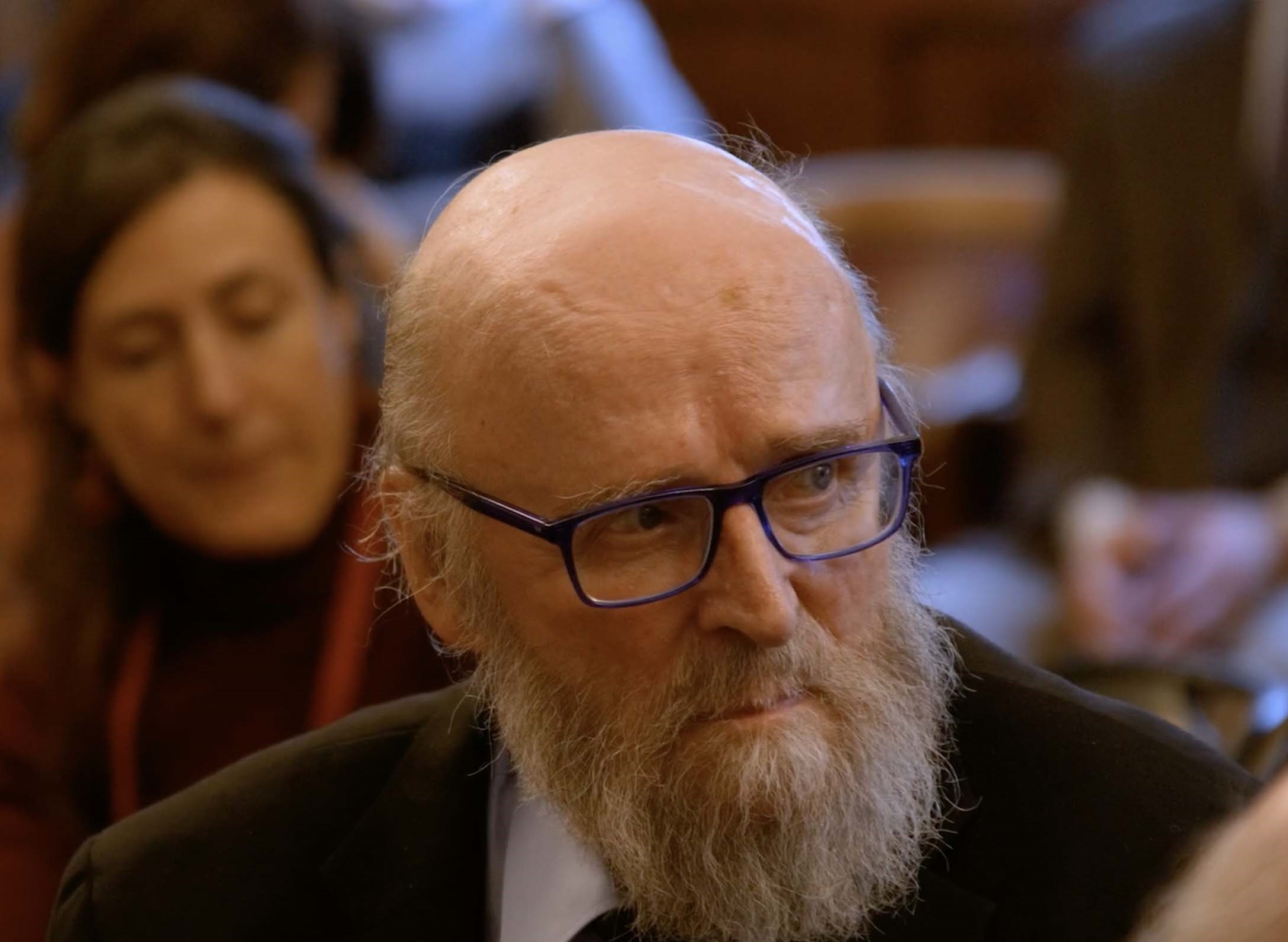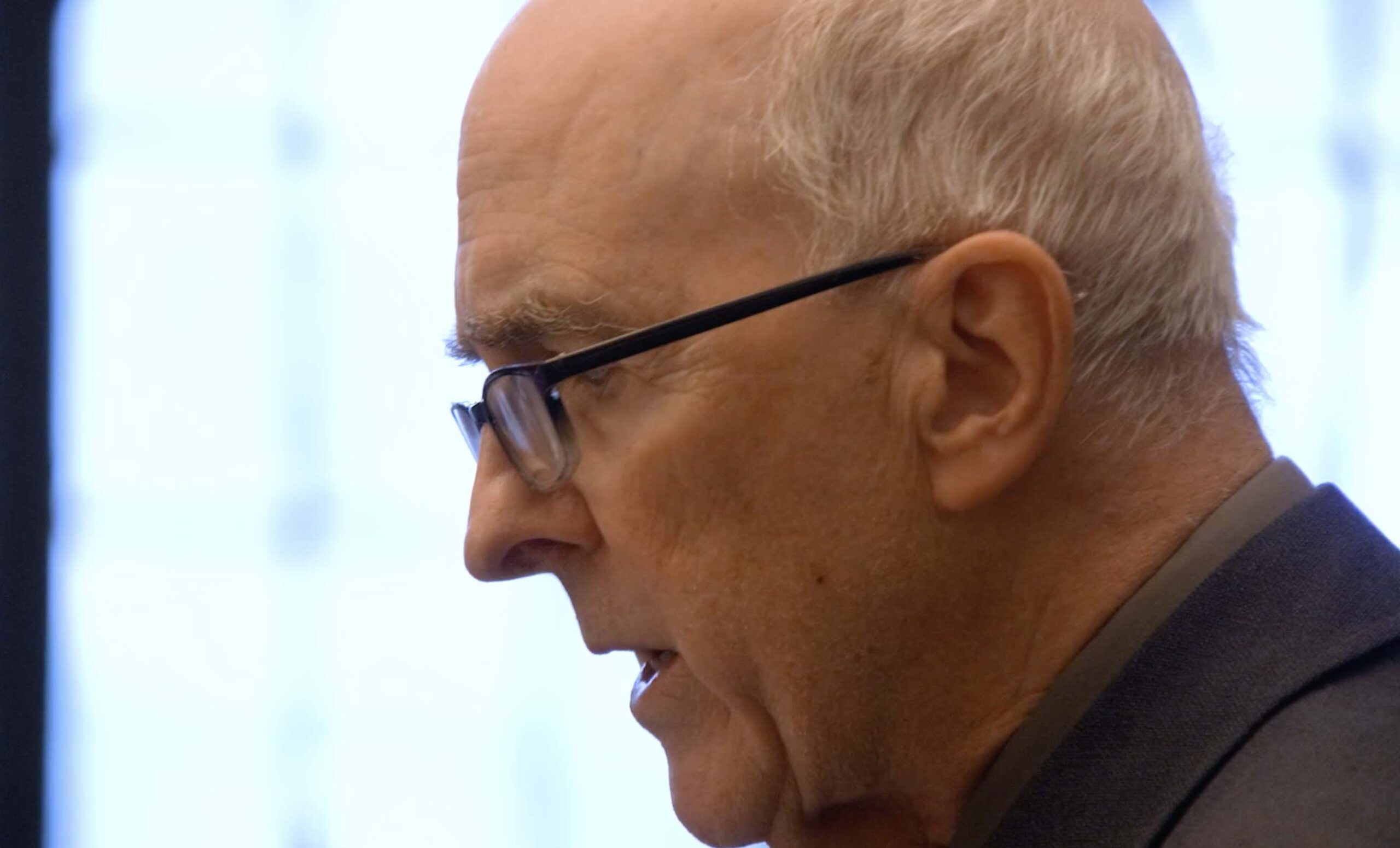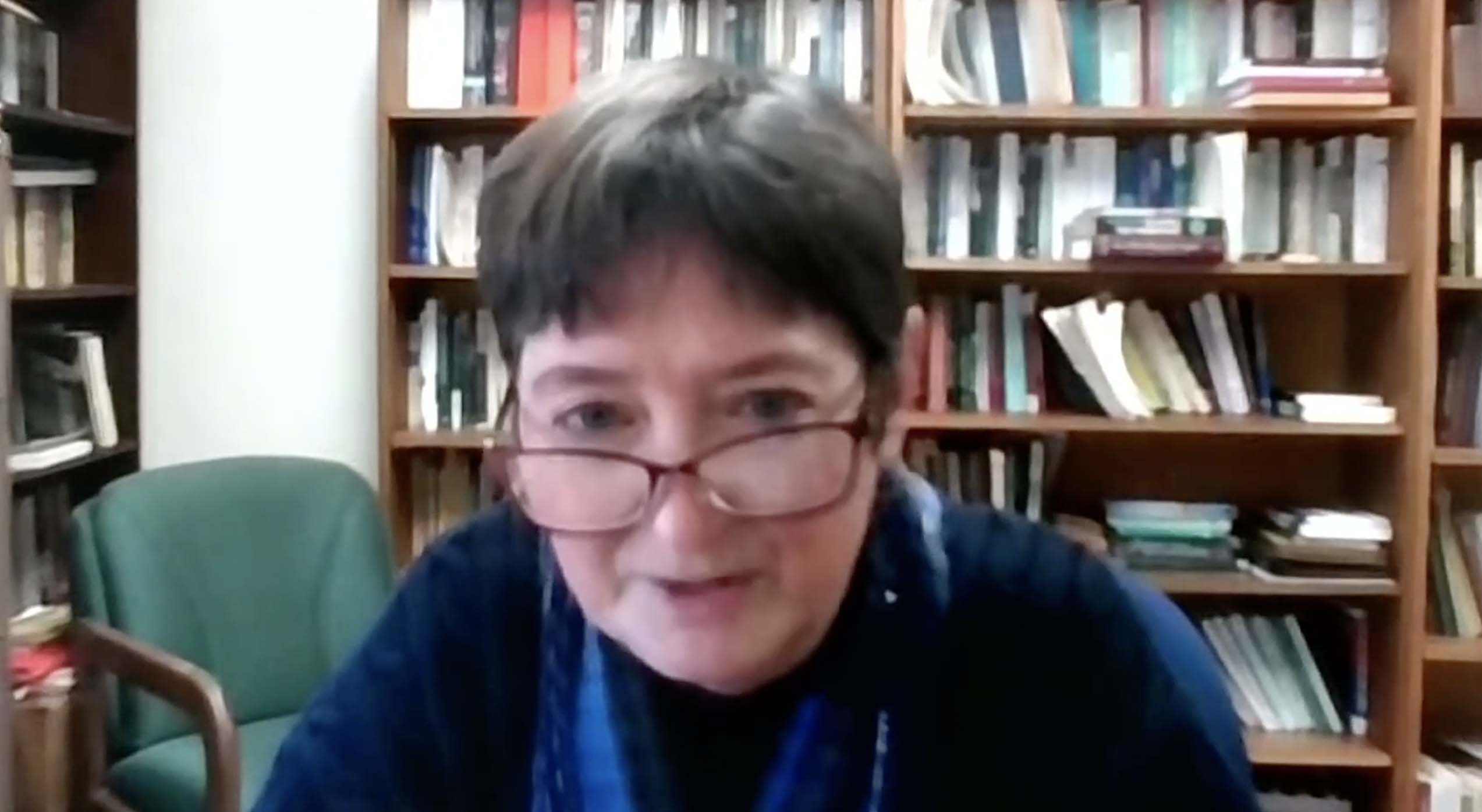
Barnabas Palfrey and Andreas Telser, eds., Beyond the Analogical Imagination: The Theological and Cultural Vision of David Tracy (Cambridge University Press, 2023)
How can a thinker make the future of theology in a present of unchosen theological retreat?
In early December 2023 a few native Chicagoans plus some visitors to the city conspired to bring a physically weak man in his mid-80s to the Common Room of the University of Chicago Divinity School, for a book launch among fifty friends and erstwhile colleagues.
David Tracy is still alert in mind, while the theological breadth and reach of his work across almost six decades has scarcely been matched within English-language theology.
Only in 2020, indeed, Tracy published two major volumes of his essays – the majority recent – selected, edited and introduced by Tracy himself. Today, Fragments: The Existential Situation of our Time as well as Filaments: Theological Profiles (The University of Chicago Press, 2020) share platform with Tracy’s most famous works from the 1970’s and ‘80s, Blessed Rage for Order, The Analogical Imagination,and Plurality and Ambiguity.

Key essays of Tracy’s in Fragments concern the value of cultural, intellectual and theological fragments (as “frag-events”) and naming God as Infinite. Other essays advance the overlooked significance of tragedy for grace, propose widenings within the ‘publicness’ of theological reason, and point towards overcoming the ‘fatal separation’ of theology and spirituality. The essays in Filaments, meanwhile, foreground Tracy’s dialogues with other key theologians and thinkers for him (Augustine, Lonergan, Marion, Weil, Murdoch, Eliot and others).
The new volume that was launched in Chicago last month, on the other hand, is mostly not by Tracy. Beyond the Analogical Imagination: The Theological and Cultural Vision of David Tracy (eds. Barnabas Palfrey and Andreas Telser; Cambridge University Press, 2023) is instead a tightly curated collection of essays about Tracy’s work, in English, from contributors – including Tracy – totalling eight countries, four continents and six mother tongues. It is in her concluding essay to this volume that Prof. Willemien Otten of the University of Chicago commends Tracy’s work for “making the future of theology now”.

As well as introducing core themes from Tracy’s work – longstanding and recent – for new or renewed theological readership, most of the essays in Beyond the Analogical Imagination expressly explore creative extras of the authors’ own, so that the book runs with and also beyond its Tracyean themes. Widening conversation is for Tracy a core theological endeavour.
So it is that the essays in Beyond the Analogical Imagination deal with Tracy’s theology-in-culture; with theological analogical imagination, placed in dialogue with Richard Kearney’s ‘anatheism’; with Tracy’s recent formulations about ‘strong shattering fragments’ that may become also ‘frag-events’ able to reveal new possibilities, placed into critical dialogue with visual artists of collage; with Tracyean notions of ‘public theology’ among some sceptical black African theologians; with Tracy’s designation of theology as ‘mystical-prophetic’, extended as ‘street theology’ via attention to hip-hop; with Tracy on the theological conversation of reason and its interruptions, now re-explored in an age of ubiquitous digital mediation; with Tracy’s appreciations of feminist theology, several medieval women mystics, and Dorothy Day and Simone Weil from the Twentieth Century, together presented as hopes for a Catholicism for the oppressed through imitation of God’s excessive love; with dialogue amid the challenges of history, tragedy and a perception of culture in fragments, extended towards a route towards forgiveness and reconciliation in post-conflict Croatia; with Tracy’s subtle accounts of the church alongside the wider world, and the mutual implications of these with Tracy’s project of naming God; and with a metaphysics of God as Infinite which may be adept at relating together premodern, modern and postmodern theological insights.
The last of these is the previously unpublished 2021 Boston College Candlemas Lecture, ‘Naming God’ by David Tracy, which is now the most succinct statement in print of the high value Tracy has come to give to ‘the Infinite’ as a thought-name for God, as well as Tracy’s most sustained account in print of the role of the 14th Century theologian John Duns Scotus in the Western history of naming God as Infinite.
The journey of producing Beyond the Analogical Imagination took about six years. A key early moment for the editors was meeting Alex Wright, Head of Humanities at Cambridge University Press, around a public lecture Tracy gave at Sarum College in Salisbury in the UK in May 2018. And a year later, several prospective contributors joined Tracy and the editors in Austria, at their own expense, at a conference hosted by the University of Vienna.[1] This event was crucial in testing the concept of the book, allowing these eventual contributors to meet together to define its ambitions.
The day before the Chicago launch of the book we held an international online mini-conference which we entitled ‘Towards Envisioning Theology with Many Centres/Centers’. The title reflected Tracy’s observation of thirty years ago, quoting Yeats, that the Western “centre cannot hold” in theology or culture. We had papers on the first half of the conference from Simone Kotva (University of Oslo) and Isabella Bruckner (Gregorian University, Rome) who applied different works by Michel de Certeau to notions of ‘theological centre’, variously to disparage pretences to strategic vision and to valorise conversation of perspectives. Yin-An Chen then spoke from his experience with the Cambridge Centre for Christianity Worldwide (as well as Trinity School for Christian Ministry, Episcopal Diocese of Taiwan), to explore Tracy’s contention, on Chen’s account, that theological universality can – and can only – be ‘held by fragmented contextualities’.
Back in the Chicago Divinity School Common Room, with Tracy duly in place, a highlight of the Book Launch of Beyond the Analogical Imagination was the penetrating twenty-minute critical reading of the new volume given by Prof. emeritus John McCarthy of Loyola University, Chicago.

McCarthy praised the book, in particular, for opening upon and pointing to a multi-faceted dimension of ‘surplus’ which opens around Tracy’s work. For McCarthy, the surplus that opens most signally of all in Tracy’s work is one which surrounds Tracy’s repeated calls of the past thirty years that we undo the separations of theology and spirituality.
The ten-minute Zoomed contribution from Prof. Mary Doak of the University of San Diego, which followed McCarthy, suggested that Tracy’s thought simultaneously opposes idolatrous reductions of the excess of God and also the current fashion for brittle mirror-opposite reflexes of ‘endless fragmentation’.

Against ‘totalising systems of certainty’, on the one hand, and ‘totalising systems of endless fragmentation’, on the other, Tracy’s exercises in theological attention, notes Doak, ‘insist on argument and conversation, dialectic and analogy, fragment and renewal’.
How then to make the future of theology now? Prof. Otten’s essay in this new volume identifies a double move at work in Tracy. On the one hand, over the decades Tracy has been prospecting with ‘pointilist precision’ a ‘fierce and radical reconceptualization of theology as a self-aware discipline’. On the other hand, by highlighting the open-ended senses of ‘permanence’ or ‘excess of meaning’ found in ‘classics’ of all kinds (cultural, intellectual, religious), Tracy’s approach has worked to open the field of attention and ‘de-escalate theological debates from conflict to conversation’.
The less polemical our theological reading-habits – the more other-oriented, analogical and attentive – perhaps also the more a theologian may become able to make a future for theology. Constitutionally, perhaps, theology is always an exercise in more or less diligently sketching in advance a thinking that can never exactly arrive in a spectated present. In theology, in other words, ‘beyond’ is a long game which is always beginning again.
(With thanks to generous sponsorship from the Lumen Christi Institute in Chicago (lumenchristi.org) that enabled webcast and recording, the 50-minute book launch can be viewed here, including McCarthy, Doak and short videos from the contributors to the Beyond the Analogical Imagination.)
Footnotes:
[1] All our thanks to Professor Kurt Appel and Assistant Professor Jakob Deibl for their hospitality there, and also to support from the Catholic Private University Linz and the Catholic University of Croatia.
Photocredits: (C) Barnabas Palfrey
RaT-Blog Nr. 03/2024